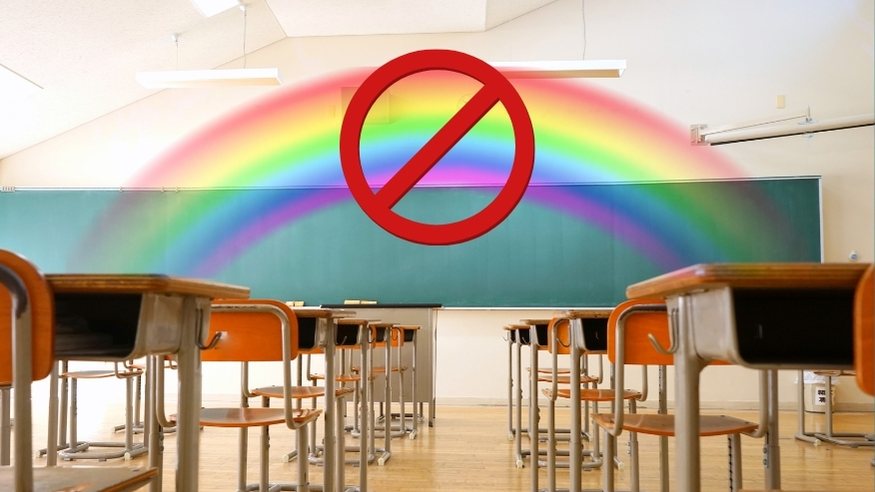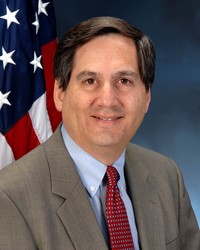Religion in Schools

U.S. Supreme Court strengthens role of religion in public schools
In a ruling that has sparked concern among school administrators and lesbian, gay, bisexual, and transgender (LGBT) communities, the US Supreme Court has backed parents’ right to exclude their children from educational content on the basis of religious objections.

John Trasviña
As a result, we are likely to see more disputes among parents, educators, school board members and other community members about both what is taught in the classroom and what extracurricular programs students may be exposed to.
The Supreme Court also issued a ruling on religious school charters while Congress and President Trump opened the door to an unprecedented tax subsidy for private schools, many of which provide religious instruction.
Parents can opt students out of lessons that conflict with religious values
Mahmoud v. Taylor (2025) involved a multi-religious coalition of parents in Montgomery County, Maryland who sought to excuse their children from class when books that the school district called “LGBT+ inclusive” were to be read. In a 6-3 decision that mirrored the political parties of the presidents who nominated them, the Justices ruled that the school district’s denial of parental requests for their children to be excused from class during the book readings unfairly burdened their religious values.
School officials now must notify parents, and give them the ability to opt out, when books such as “Uncle Bobby’s Wedding”, “Born Ready: The True Story of a Boy Named Penelope” and “Love, Violet” are read in class.
In a rarity for a Supreme Court decision, both the majority opinion by Justice Alito and the dissent by Justice Sotomayor displayed pages from the children's books in question. Justice Alito’s opinion highlighted the books’ discussion of topics such as gender and marriage that conflicted with the religious teachings of the parents and children or were matters parents felt might not be age-appropriate. In dissent, Justice Sotomayor wrote, “The result will be chaos for this Nation’s public schools.”
The concern that public school instructional choices could infringe on religious upbringing isn’t new. Over a century ago, Lutheran parents successfully challenged a Nebraska law that prohibited languages other than English from being taught in elementary school on the grounds that keeping the German language from being taught made it more difficult for parents to teach Bible lessons to their children at home. (Meyer v. Nebraska, 262 U.S. 390 (1923))
Will school districts eliminate controversial materials?
This year’s ruling instructs lower courts to examine a curriculum’s potential infringement on religious exercise under strict scrutiny, a legal test that typically means a restriction will be struck down. Justice Sotomayor predicts that school officials will not be aware of all the religions represented in a school community or their teachings and thus not be able to inform parents what might be in conflict in order to give them their new legally recognized opportunity to opt out. Many districts may respond by eliminating any potentially controversial topics, including LGBT+ inclusive material, in order to avoid the cost of defending against challenges, being required to offer dual lessons, or risking stigmatizing LGBT+ students or children of LGBT+ parents.
Impact on Ethnic Studies
Significantly, the decision balanced the parents’ First Amendment free exercise of religion rights with the rights of public schools to establish a curriculum and conduct classroom instruction. In California, the high school ethnic studies curriculum in some districts has been criticized for promoting anti-semitism in its discussion of the Jewish community in the United States and the current debate about Gaza.
The decision in Mahmoud v. Taylor provides Jewish parents a legal basis for a school district to provide an opt-out mechanism from classes they believe conflict with their or their children’s religious upbringing. That right may or may not be extended to a non-Jewish parent whose objection to a lesson may be cultural or political. One interfaith group that filed an amicus brief in support of the school district feared that some religious organizations might weaponize the decision to challenge education about groups they disfavored. For example, a parent who adheres to a religion that does not believe in women’s equality or racial intermarriage might now have the ability to pull his or her child from readings about those subjects.
Religious Charter Schools: No…
Other Court action kept — at least temporarily — the nation’s first religious charter school from opening. By virtue of a 4-4 split without Justice Amy Comey Barrett participating and without a written opinion or dissent, the Court’s inaction effectively upheld an Oklahoma state Supreme Court ruling that had reversed a charter granted to a K-12 virtual Catholic school.
While the tie vote means that the decision cannot necessarily be applied nationwide, it supports arguments that charter schools are public schools and that support for a religious school violates the Constitution’s Establishment Clause prohibiting the government from endorsing or funding religious instruction.
In response to losing its charter, the St. Isidore of Seville Catholic Virtual School no longer follows state laws making its meetings or other records publicly available the way a public school would. The decision rids the charter school movement from criticism that it subsidizes religious admissions or instruction. The issue may come back to the Supreme Court in the future when a religious charter school applicant brings a case where Justice Barrett is not recused and can break the tie.
Public money for private and religious schools
While religious schools did not gain access to charters, they did greatly benefit from historic tax code revisions in the Budget Reconciliation bill passed by Congress and signed into law by the president on July 4, 2025. Under the new provisions, a taxpayer may donate up to $1,700 to an organization that provides private school scholarships and receive a federal tax credit for the full amount of the donation. The bill also makes families with incomes of up to three times their area’s median eligible for private school vouchers. In the Washington, D.C. area, families with gross income up to $300,000 and in San Francisco up to $420,000 are estimated to qualify. The resources that these schools and families gain directly displace funds that would otherwise have been spent in the public sector.
The U.S. Supreme Court's recognition and endorsement of parents' religious rights in public education will result in clashes between values and norms across school districts nationwide. It places new burdens on school officials to identify and address potential areas of controversy between curriculum and parental or community religious interests. Greater understanding and communication among all stakeholders is essential.
Tags on this post
Private schools Vouchers Catholic schools Education foundations Religious educationAll Tags
A-G requirements Absences Accountability Accreditation Achievement gap Administrators After school Algebra API Arts Assessment At-risk students Attendance Beacon links Bilingual education Bonds Brain Brown Act Budgets Bullying Burbank Business Career Carol Dweck Categorical funds Catholic schools Certification CHAMP Change Character Education Chart Charter schools Civics Class size CMOs Collective bargaining College Common core Community schools Contest Continuous Improvement Cost of education Counselors Creativity Crossword CSBA CTA Dashboard Data Dialogue District boundaries Districts Diversity Drawing DREAM Act Dyslexia EACH Early childhood Economic growth EdPrezi EdSource EdTech Education foundations Effort Election English learners Equity ESSA Ethnic studies Ethnic studies Evaluation rubric Expanded Learning Facilities Fake News Federal Federal policy Funding Gifted Graduation rates Grit Health Help Wanted History Home schools Homeless students Homework Hours of opportunity Humanities Independence Day Indignation Infrastructure Initiatives International Jargon Khan Academy Kindergarten LCAP LCFF Leaderboard Leadership Learning Litigation Lobbyists Local control Local funding Local governance Lottery Magnet schools Map Math Media Mental Health Mindfulness Mindset Myth Myths NAEP National comparisons NCLB Nutrition Pandemic Parcel taxes Parent Engagement Parent Leader Guide Parents peanut butter Pedagogy Pensions personalized Philanthropy PISA Planning Policy Politics population Poverty Preschool Prezi Private schools Prize Project-based learning Prop 13 Prop 98 Property taxes PTA Purpose of education puzzle Quality Race Rating Schools Reading Recruiting teachers Reform Religious education Religious schools Research Retaining teachers Rigor School board School choice School Climate School Closures Science Serrano vs Priest Sex Ed Site Map Sleep Social-emotional learning Song Special ed Spending SPSA Standards Strike STRS Student motivation Student voice Success Suicide Summer Superintendent Suspensions Talent Taxes Teacher pay Teacher shortage Teachers Technology Technology in education Template Test scores Tests Time in school Time on task Trump Undocumented Unions Universal education Vaccination Values Vaping Video Volunteering Volunteers Vote Vouchers Winners Year in ReviewSharing is caring!
Password Reset
Search all lesson and blog content here.
Login with Email
We will send your Login Link to your email
address. Click on the link and you will be
logged into Ed100. No more passwords to
remember!
















Questions & Comments
To comment or reply, please sign in .
Denise Robb July 28, 2025 at 10:47 am
Jeff Camp - Founder August 7, 2025 at 3:35 pm
Carol Kocivar July 13, 2025 at 1:43 pm